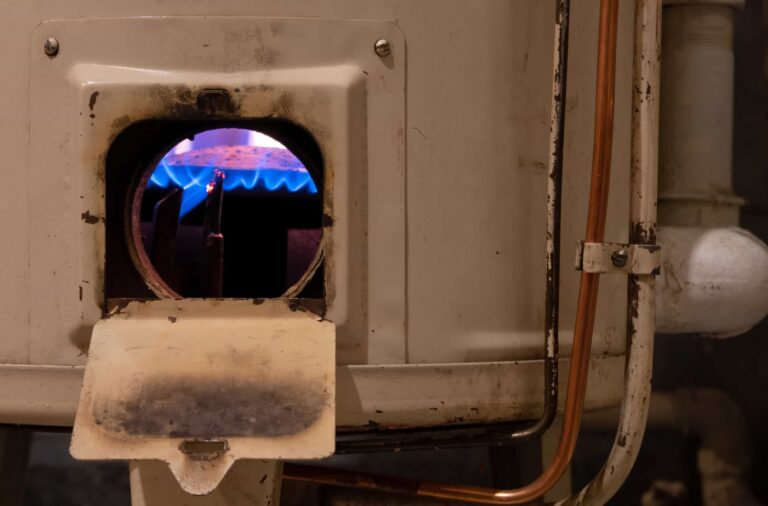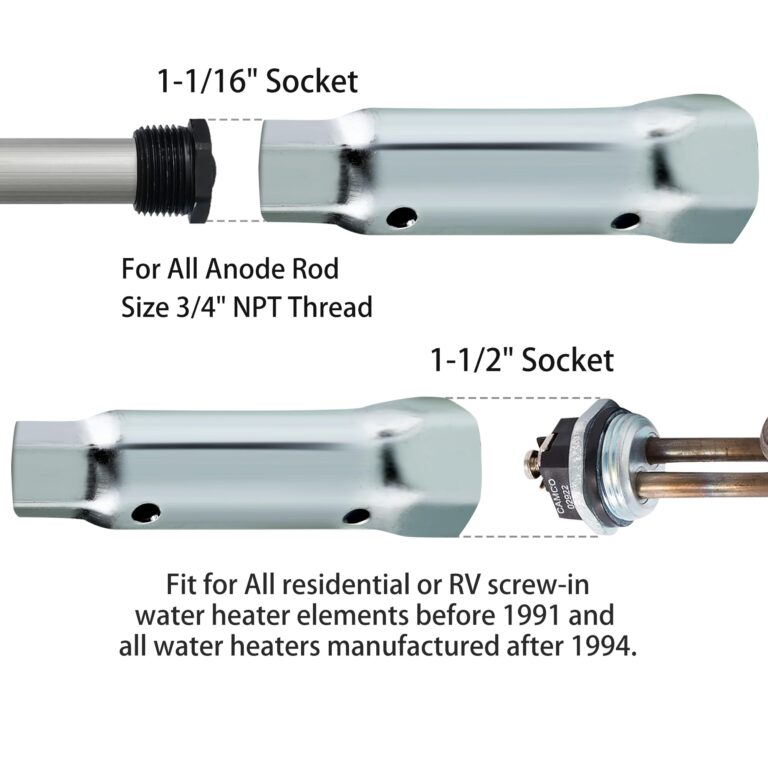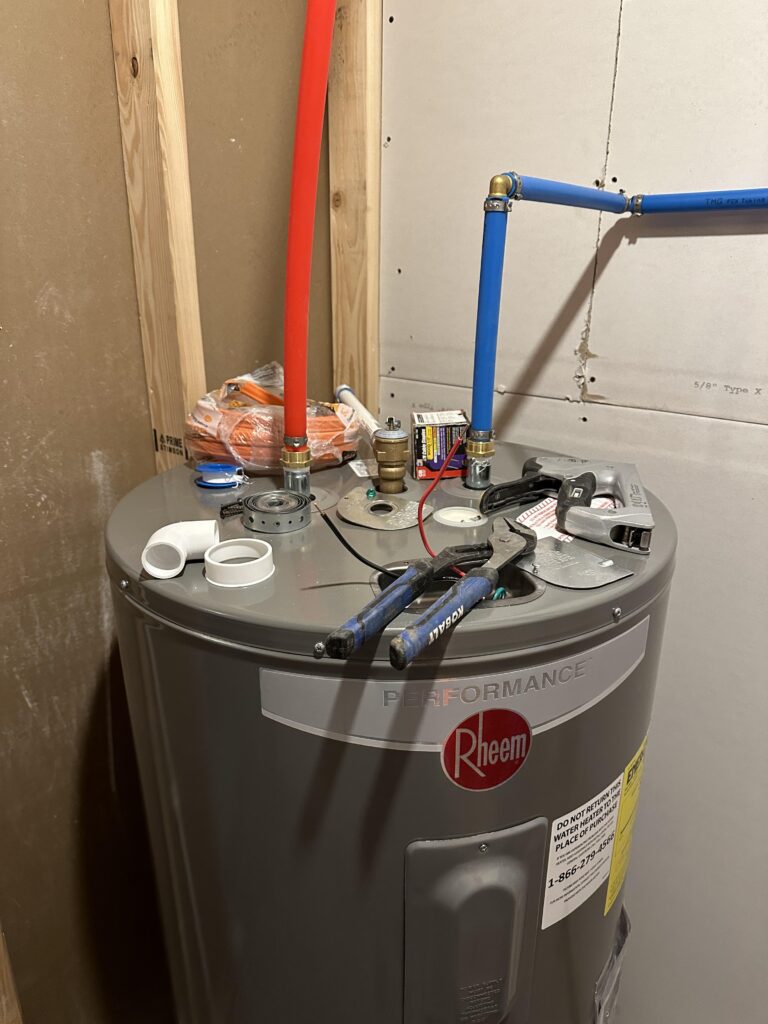Have you ever wondered what happens to your water heater when you turn off the water supply? It’s a common scenario—whether you’re going on vacation, dealing with a plumbing issue, or simply curious about your home’s systems.
Understanding the relationship between your water heater and the water supply can save you from potential headaches and expenses. You’ll discover the surprising effects of turning off the water and how it impacts your water heater’s performance and longevity.
You’ll be amazed at how a small change in your routine can make a big difference in your home’s efficiency and safety.
Water Heater Mechanics
Water heaters are important in homes. They heat water for showers and baths. A water heater has a tank. Inside, cold water is heated by a burner or electric element.
When the water is turned off, the heater stops getting cold water. It doesn’t heat new water. But the water in the tank stays warm.
Pressure can build up inside the heater. Without fresh water, the heater might get too hot. This can be dangerous.

Credit: www.youtube.com
Safety valves help release extra pressure. They protect the heater. It’s good to turn off the heater if there’s no water. This keeps it safe. Always check your heater’s manual for advice.
Impact Of Water Shutoff
When water is turned off, a water heater can face issues. It might not work properly without water flow. The heater needs water to transfer heat. Without water, it cannot heat anything. This can lead to damage if not managed well.
Turning off the water can also cause air to enter the system. Air pockets might form and block pipes. This can cause pressure changes inside the heater. Pressure changes can harm the heater parts. It’s important to check the heater if the water is off for long.
Regular checks can prevent harm. Safety measures should be considered to avoid damage. Always ensure water is flowing before using the heater. This ensures it works safely and efficiently. Proper maintenance keeps the heater in good shape. This helps avoid costly repairs in the future.
Pressure Changes
Water heater pressure changes when water is turned off. The heater’s pressure relief valve might open. This stops the heater from bursting.
Without water, the heater’s tank loses pressure. The heater might make noises. These noises can be hissing or gurgling. Pressure changes can affect heater parts. Pipes and valves might get loose. Loose parts can cause leaks.
Leaks can be dangerous. Check the heater for leaks. Fix leaks quickly to avoid problems. Keep an eye on the heater. Watch for strange sounds or leaks. If leaks occur, call a plumber.
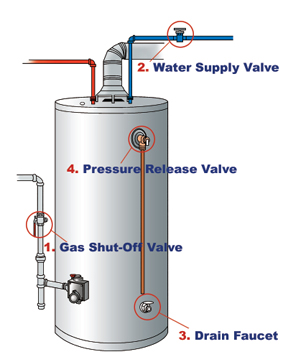
Credit: justcallburton.com
Safety Concerns
Water heaters need water to work safely. Without water, there is a risk. The heater can overheat and cause damage. It’s important to know how to handle this. Always turn off the water heater before stopping the water supply.
This simple action prevents possible accidents. The heating element can burn out if there’s no water. It can also lead to costly repairs.
Check the heater regularly to ensure safety. Make sure all parts are working fine. This keeps the heater in good condition.
Always call a professional if unsure about safety concerns. Proper care protects your home and family. It’s always better to be safe than sorry.
Potential Damage
Water heaters need water to work well. Turning off water can cause damage. The heater might overheat. No water means no cooling. Parts inside can wear out faster. This is bad for the heater.
Sediment can build up too. Dirt and particles stay inside. They make the heater less efficient. It uses more energy to heat water. This can lead to higher bills.
Without water, the tank can rust. Rust makes the tank weak. It might leak or break. Fixing these problems costs a lot.
Sometimes, the heater makes strange sounds. These sounds mean trouble. They show the heater needs help. Regular checks can prevent damage. Always take care of your water heater.
Preventive Measures
Always turn off your water heater if water stops. This prevents damage. Without water, the heater could overheat. It needs water to cool down. Overheating can harm the heater. It might even break.
Turn off the power to the heater. This is important for safety. Electric heaters need special care. Gas heaters too. Check all settings. Make sure everything is off.
Look for leaks around the heater. Fix them quickly. Leaks can cause problems. They waste energy. Regular maintenance helps.
Keep the heater clean. Check for rust or damage. Call a professional if needed. They can check everything. Keep your heater working well.
Restarting Procedures
Turning on a water heater is important. First, check the water supply. Make sure water flows into the heater.
Look for leaks or blockages. Next, switch on the power source. Ensure electric or gas supply is connected. Adjust the thermostat to the desired temperature. This helps in getting hot water fast.
Wait for some time. The heater needs time to warm the water. Lastly, test the hot water tap. This confirms the heater works properly. Follow these steps safely. Always read the manual for detailed instructions. This prevents any accidents or mishaps.
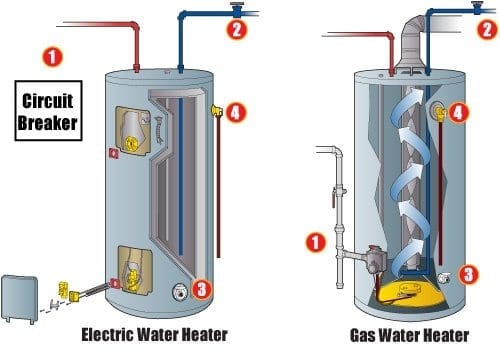
Credit: www.4donnellys.com
Does Turning Off Water Affect The Heater?
Turning off the water supply doesn’t damage your heater. However, it can prevent new water from entering the tank.
Ensure all taps are closed to avoid air entering the system, which can cause issues. It’s advisable to consult a plumber for prolonged water shutdowns.
Can The Heater Stay On With No Water?
Leaving the heater on without water can cause overheating. This may lead to damage or even a potential fire hazard.
It’s crucial to turn off the heater when the water supply is cut to prevent any risks. Check the manufacturer’s guidelines for specific instructions.
How Long Can A Heater Run Without Water?
A heater should not run without water for extended periods. Running it dry can lead to overheating and damage.
It’s recommended to turn it off immediately if the water supply is interrupted. Consult a professional if unsure about your specific model’s requirements.
Will Pipes Freeze If Water Is Off?
Pipes can freeze if the water supply is off during cold weather. Ensure the heater and pipes are adequately insulated to prevent freezing.
Consider draining the system if anticipating a prolonged shutdown. Consult a plumber for preventive measures in freezing climates.
Verdict
Understanding your water heater’s behavior is crucial. Especially when water is turned off. It helps prevent potential issues. Regular checks ensure it remains efficient. You might save on energy costs too. Sometimes, simple maintenance can avoid bigger problems. Always consult a professional for major concerns.
This ensures safety and extends your heater’s life. Remember, a well-maintained water heater is a reliable one. Consider these tips to protect your home. And keep your water heater running smoothly. Your peace of mind depends on it. Stay informed and proactive.
Enjoy warm water without worries.

